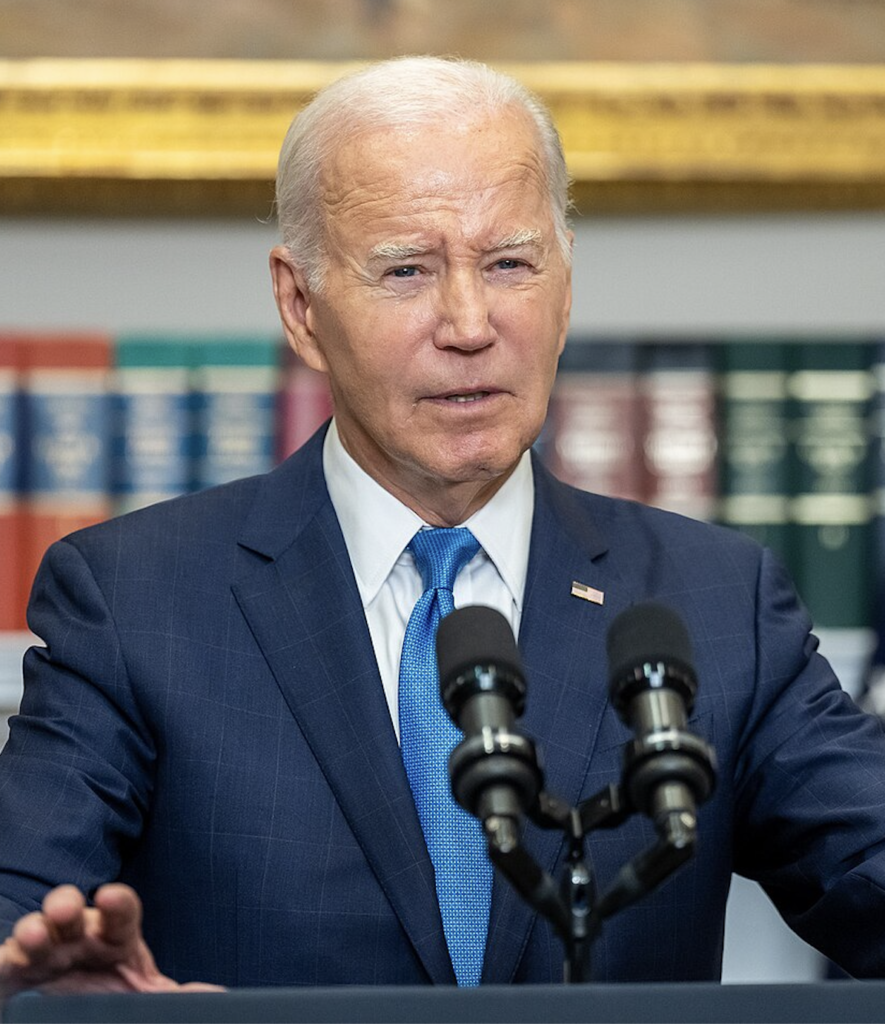Netanyahu and Biden: Navigating the Gaza Ceasefire


By: Ghassan Rubeiz / Arab America Contributing Writer
There is a firestorm in Washington over Israeli Prime Minister Netanyahu’s role in Gaza. While President Biden attempts to control Netanyahu’s damage, The Speaker of the House invites him to address a joint session of Congress.
Last Friday President Biden announced his support for a presumed Israeli ceasefire proposal in Gaza. There is ambiguity about the origin of this proposal. According to Ma’ariv’s Ben Caspit, Biden “dragged Netanyahu by the hair out of the closet he is accustomed to hiding in, exposed the Israeli proposal (that Netanyahu signed off on), presented the situation clearly and honed the dilemma sharply and precisely”. (Ben Caspet, Israel and Middle East News, June 3, 2024)
Since the White House broke the news, it was assumed that Israel was fully ready to end the fighting with Hamas. There are conflicting pronouncements from Israel on this matter, and Hamas has not yet formally accepted.
To explain the possible breakthrough, Biden asserted that “Hamas is no longer capable of carrying out another October 7”. The new ceasefire would stop the war, free captives on both sides of the conflict, and start a process of negotiation for a permanent ceasefire and reconstruction. The crucial word is “permanent”.
The proposal was envisaged in three phases. During a six-week first phase, Israel’s armed forces would withdraw from “populated” areas in Gaza; civilian Israeli hostages would return home, in exchange for the release of a significant number of Palestinian prisoners.
Surprisingly, the day after Biden announced the plan, Israel launched a deadly attack on a Rafah neighborhood killing 45 Palestinians; and Netanyahu declared unwillingness to stop the fighting any time soon.
On May 6 Hamas had accepted a ceasefire which Netanyahu rejected. As it did in causing the mix-up of the previous ceasefire proposal, the White House confused the media yet again by announcing prematurely that a deal was on the table.
A June 2 Washington Post report states that “Hamas said Friday that it viewed Biden’s speech on the deal ‘positively’, but that its willingness to engage was ‘based on a permanent cease-fire’ and the ‘complete withdrawal’ of Israeli forces from the Strip”.
This latest deal is still viable. There is a chance for Netanyahu to yield to domestic and international pressure to end the suffering on all sides. Perhaps, Washington has exposed the plan to the public as a pressure tactic. Will this tactic work?
Emboldening Netanyahu are his notorious chauvinist partners in the cabinet. The two extreme-right ministers, Itamar Ben-Gvir and Bezalel Smotrich have repeatedly threatened to withdraw from the cabinet and collapse the current government if Netanyahu accepted any prolonged ceasefire deal. The Israeli public is divided on the issue of ending the war: one side supports an immediate ceasefire at any cost and the other is willing to risk the fate of the hostages in order to achieve a decisive victory. Regrettably, many in Israel are not yet satisfied with the devastating level of retaliation.
Even if the announced deal were to be accepted, its full implementation would not be easy. Netanyahu realizes that ending the war in Gaza would lead to the termination of his political career. The majority of Israelis are not yet ready to consider the withdrawal of forces from any part of the Occupied Territories. And many hope for new leadership in the US administration in November, a change that most likely would promote the realization of Greater Israel.
Netanyahu struggles to hold on to power:
Netanyahu has failed to liquidate Hamas; the cost of launching the war is estimated to be as high as the cost of reconstruction of Gaza. October 7 occurred on his watch; he had failed to protect Israel’s border with Gaza. He is unpopular. He is charged with three corruption crimes; ending the war may lead to his conviction. During his long tenure as prime minister, he had tacitly facilitated the hold of Hamas on power in Gaza to keep the Palestinians divided.
Support of the US Republican leadership helps Netanyahu stay in power. Last Friday, the day Biden announced the ceasefire, Netanyahu received a bipartisan invitation to address a joint session of the US Congress, an honor reserved for distinguished guests and close allies. Prominent Republicans Lindsay Graham and Nicky Haley visited Israel over the weekend in support of Netanyahu and his government. “Finish them”, referring to Hamas, Haley shouted while attending a public event in Israel.
Forty Percent of Israelis favor continued control over Gaza. (Middle East and Israel News, June 3, 2024). Some feel that after hostages are released, it would be easy to liquidate Hamas with merciless force. Many believe that their national security is not sustainable without the perpetual application of force to keep Palestinians in check. For some, a two-state solution would lead to the end of Israel.
When Netanyahu stands up to Biden he is backed up by a sizable segment of Israeli and American society.
Israelis await Trump:
Israeli politicians are aware that Biden does not commit to pushing for the liberation of Palestinians. Biden resorts to the rhetoric of supporting the “two-state” solution. Such rhetoric helps him in seeking the Arab and Muslim votes in November.
By tying the establishment of a Palestinian state to a divisive alliance, known as the Abraham Accords, Biden is diluting the process of empowerment in state-building. The Abraham Accords have aroused the suspicion of all the Shiite-majority states in the region. A Palestinian state created to become part of a sectarian alliance is doomed.
If Biden sounds regressive in his understanding of Palestinian liberation, Trump’s version of statehood is even worse. It was the Trump administration that worked hand-in-glove with the Netanyahu government to create the Abraham Accords. In the Accords there is no place for a Palestinian state.
Expecting a Trump victory in November, Netanyahu reminded us last week that he believes the Gaza war will continue till the end of the year. In a second Trump term, the problems of Gaza and the rest of the occupied territories would be handled through a lucrative business deal: projects of condo towers and shopping centers. This regressive regional peace paradigm suits Netanyahu very well. Netanyahu and Putin are both waiting for Trump (msn.com)
The key to the resolution of the Palestine question is not simply the cessation of the current fighting for an indefinite period. It should be about ending the occupation and finding a positive role for Israel and future Palestine in a stable and empowered region.
Ghassan Rubeiz is the former Middle East Secretary of the World Council of Churches. Earlier he taught psychology and social work in his country of birth, Lebanon, and later in the United States, where he currently lives. For the past twenty years, he has contributed to political commentary and delivered occasional public talks on subjects related to peace, justice, and interfaith. You can reach him at rubeizg@gmail.com
The views and opinions expressed in this article are those of the author and do not necessarily reflect the position of Arab America. The reproduction of this article is permissible with proper credit to Arab America and the author.
Check out our Blog here!








